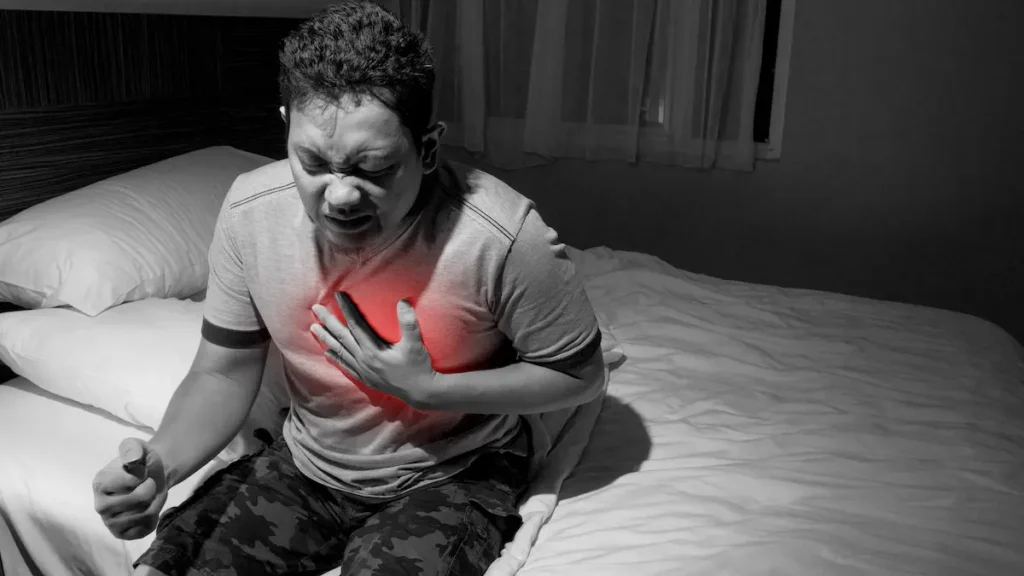
Do you often feel a burning sensation in your chest after eating? Or a sour taste in your mouth when you lie down? If this sounds familiar, you might be dealing with GERD. It is also known as Gastroesophageal Reflux Disease. Millions of people in the U.S. suffer from this chronic digestive disorder, where stomach acid frequently flows back into the esophagus.
The good news is that GERD is manageable. However, you need to make the right dietary choices in your daily life. In this blog, we’ll walk you through effective GERD treatments, simple lifestyle changes, commonly used medications, and when surgery may be required to get your symptoms under control and improve your quality of life.
If you’re looking for help, GI Partners of Illinois is here to help you through your GI care journey.
What Is GERD?
GERD occurs when stomach acid frequently flows back into the esophagus. This happens due to a weak or malfunctioning lower esophageal sphincter (LES). As a result, it causes burning discomfort, commonly known as heartburn or acid reflux.
Common Symptoms of GERD
- Heartburn or acid reflux
- Sour liquid or food coming back into the mouth
- Difficulty swallowing/Dysphagia
- Chronic cough or sore throat
- Sensation of a lump in the throat
- Chest pain
Lifestyle Changes to Manage GERD
Before reaching for medications, simple adjustments in your daily life can make a big difference. Here are some GERD-friendly lifestyle changes that can reduce acid reflux:
✅ Eat smaller meals
Large meals put pressure on your stomach, which increases the chance of reflux.
✅ Avoid trigger foods
Common triggers include spicy and fatty foods, chocolate, caffeine, citrus, and carbonated drinks.
✅ Don’t lie down right after eating
Wait for at least 2-3 hours before lying down or going to bed.
✅ Elevate the head of your bed
Raising your bed by 6-8 inches can help prevent nighttime GERD symptoms.
✅ Maintain a healthy weight
Extra pounds can increase pressure in the abdomen and worsen GERD symptoms.
✅ Quit smoking
Smoking weakens the LES and increases acid production.
Foods to Avoid to Manage GERD
- Spicy foods, such as hot sauces, jalapeños, and spicy curries, can increase acid reflux.
- Citrus fruits and juices, such as oranges, lemons, limes, and grapefruits, can worsen acid reflux symptoms.
- Tomato-based foods, such as pasta sauces, ketchup, pizza sauce, and salsa, are naturally acidic.
- Fried and fatty foods, such as French fries, fried chicken, and full-fat dairy, can slow digestion and put pressure on the stomach.
- Caffeine products, such as coffee, black tea, and energy drinks, can stimulate acid production and relax the LES.
- Carbonated drinks and alcohol, such as soda, sparkling water, and beer, can lead to bloating.
- Onions and garlic, especially when eaten raw, can trigger acid reflux in some people.
- Peppermint relaxes the LES, making it easier for acid to flow back up into the mouth.
Tips
- Everyone’s triggers can be different. So, consider keeping a food diary to track the causes of your symptoms.
- Choose low-acid and high-fiber foods. Examples include oatmeal, bananas, green vegetables, and lean proteins.
Medications
When lifestyle changes aren’t enough, over-the-counter medications can help reduce acid reflux and heal the esophagus.
Antacids: Quick relief (Tums, Rolaids)
H2 Blockers: Reduce acid production (Pepcid, Zantac)
PPIs: Heal esophageal lining (Prilosec, Nexium, Protonix)
Prokinetics: Improve stomach emptying (less commonly used)
IMPORTANT: Long-term use of PPIs should be discussed with your doctor due to potential side effects.
When Is Surgery Needed for GERD?
In some cases, lifestyle changes and medications may not be enough. This is especially true if you have severe GERD or Barrett’s esophagus. That’s when surgical options come into play.
Fundoplication: The most common GERD surgery. It strengthens the LES by wrapping the top of the stomach around it.
LINX device: A small ring of magnetic beads is placed around the LES to prevent acid reflux while still allowing food to pass.
Surgery is usually considered when:
- Symptoms are severe
- There’s a risk of esophageal cancer
- You want to avoid lifelong medication use
GI Partners of Illinois: Your Partner in Premium Digestive Care
At GI Partners of Illinois, we understand how disruptive GERD can be to your daily life. Our team of board-certified gastroenterologists provides personalized care for GERD, from diagnosis to treatment and long-term management.
- In-depth diagnostic testing, including endoscopy and pH monitoring.
- Create an effective GERD treatment plan with lifestyle coaching and medication.
- Our GI specialists use advanced procedures when needed.
- Friendly and compassionate care throughout your care journey.
Don’t Let GERD Take Over your Health
If you’re struggling with GERD symptoms, it’s time to take action.
Call GI Partners of Illinois today at (872) 328-4880 or book an appointment for reliable and effective digestive care.
